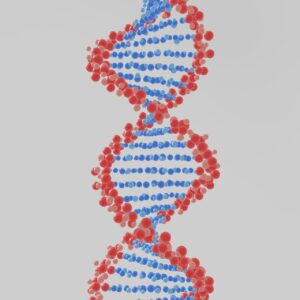Epigenetics is proof that daily choices reshape your future. Upgrade your “food signals” by replacing refined sugar with Health Garden’s clean, non-GMO sweeteners that fit an epigenetic lifestyle. From silky allulose and pure xylitol to monk fruit and erythritol blends, you get real sweetness with low glycemic impact so your meals, coffee, and smoothies align with the health story you want your genes to tell.
Discover how epigenetics and holistic health practices can help reprogram your genes for optimal health.
INTRODUCTION: THE POWER OF EPIGENETICS IN HEALTH

Epigenetics has transformed how we think about health. Your DNA is the blueprint, but lifestyle and environment influence which parts of that blueprint are expressed. With informed choices, you can support gene expression that promotes energy, resilience, and lower risk of chronic disease.
What this means for you:
• You’re not limited by predispositions.
• Daily choices in food, movement, sleep, and mindset can shift gene expression.
• Small, consistent habits compound into meaningful health outcomes.
THE BASICS: WHAT IS EPIGENETICS?

Epigenetics refers to changes in gene activity without altering the DNA sequence. Environmental inputs—nutrition, stress, toxins, sleep, and movement—can “turn on” or “turn off” genes.
Why it matters:
• Harmful inputs (poor diet, smoking, chronic stress, toxins) can promote unfavorable expression linked to obesity, diabetes, and cardiovascular issues.
• Helpful inputs (balanced nutrition, regular exercise, restorative sleep, stress reduction) support more favorable gene expression and long-term health.
KEY EPIGENETIC MECHANISMS

DNA methylation:
Methyl groups attach to DNA at CpG sites, influencing whether genes are expressed. Dysregulated methylation patterns have been linked to metabolic and inflammatory conditions.
Histone modifications:
DNA wraps around histone proteins. Chemical changes to histones can make genes more or less accessible, affecting aging, metabolism, and cognition.
MicroRNA (miRNA) regulation:
miRNAs are small RNA molecules that bind to messenger RNA and can dial protein production down. They influence pathways tied to inflammation, immunity, and metabolism.
THE ROLE OF NUTRITION IN GENE EXPRESSION

Food is information for your genes. Nutrients and bioactives can shape methylation, histone changes, and miRNAs.
Epigenetic-supportive foods:
• Leafy greens: folate for healthy methylation
• Berries: anthocyanins and flavonoids that combat oxidative stress
• Nuts and seeds: healthy fats that support brain and metabolic health
• Turmeric: curcumin associated with balanced inflammatory signaling
Omega-3s:
Plant sources such as algae oil, flaxseed, and walnuts provide omega-3s linked with neuroprotection and healthy inflammatory responses.
HOLISTIC HEALTH APPROACHES TO EPIGENETIC WELLNESS

Meditation and mindfulness:
Lower perceived stress can help rebalance stress-related pathways and immune signaling.
Physical activity:
Exercise favorably influences metabolic genes, reduces inflammatory tone, and supports brain-derived neurotrophic factor (BDNF) for cognitive health.
LINUS PAULING’S LEGACY: ORTHOMOLECULAR MEDICINE

Orthomolecular medicine emphasizes optimizing health through precise nutrient intake.
Vitamin C and immunity:
Vitamin C is widely used to support antioxidant capacity and immune function.
Niacin and mental health:
Historical work explored niacin (vitamin B3) for mood and cognition within nutrition-focused approaches.
LIFESTYLE FACTORS THAT INFLUENCE GENE EXPRESSION

Diet and nutrition:
A varied, nutrient-dense diet helps maintain epigenetic stability and metabolic balance.
Physical activity:
Consistent movement supports DNA integrity, cardiometabolic health, and cognitive performance.
Mindfulness and stress reduction:
Chronic stress can push gene expression toward higher disease risk. Practices like meditation, breathwork, yoga, time in nature, and quality sleep help course-correct.
HOW TO APPLY EPIGENETIC NUTRITION IN YOUR LIFE

Balanced diet:
Center meals on vegetables, fruits, legumes, whole grains, lean proteins, and healthy fats. Rotate colors and plants to broaden nutrient exposure.
Exercise:
Blend aerobic training, strength work, and mobility. Aim for most days of the week, adjusting intensity to your baseline and goals.
Mindful living:
Build a daily stress-reduction ritual. Protect sleep with consistent bed/wake times and a dark, cool, quiet room.
Supplement wisely:
Target gaps with evidence-backed supplements such as vitamin C, niacin, and omega-3s when diet alone may not suffice. Work with a qualified healthcare professional for personalized guidance.
CONCLUSION: REWRITING YOUR GENETIC STORY
Epigenetics reframes health as something you can influence. By aligning nutrition, movement, stress management, sleep, and smart supplementation, you support gene expression for longevity and vitality.
Turn insight into action with simple swaps that stick. Stock your pantry with Health Garden’s keto-friendly sweeteners and enjoy desserts, drinks, and sauces that taste incredible while supporting smarter nutrition. Visit healthgardenusa.com and power your epigenetic routine with sweetness that works for you.




